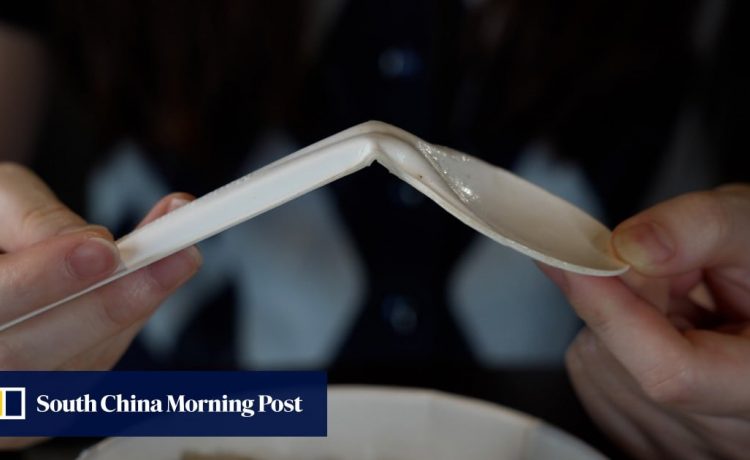The Post has tested several types of non-plastic utensils with popular takeaway foods for you.
1. Bubble tea
Out of the several bubble tea shops we visited in Causeway Bay, most of them were still giving out plastic straws, which is allowed under the six-month period.
We ordered two cups of bubble tea from two shops that provide non-plastic straws. One uses straws made of coffee grounds with the durability similar to plastic ones. Its shape and texture remained the same two hours after it was put in the drink.
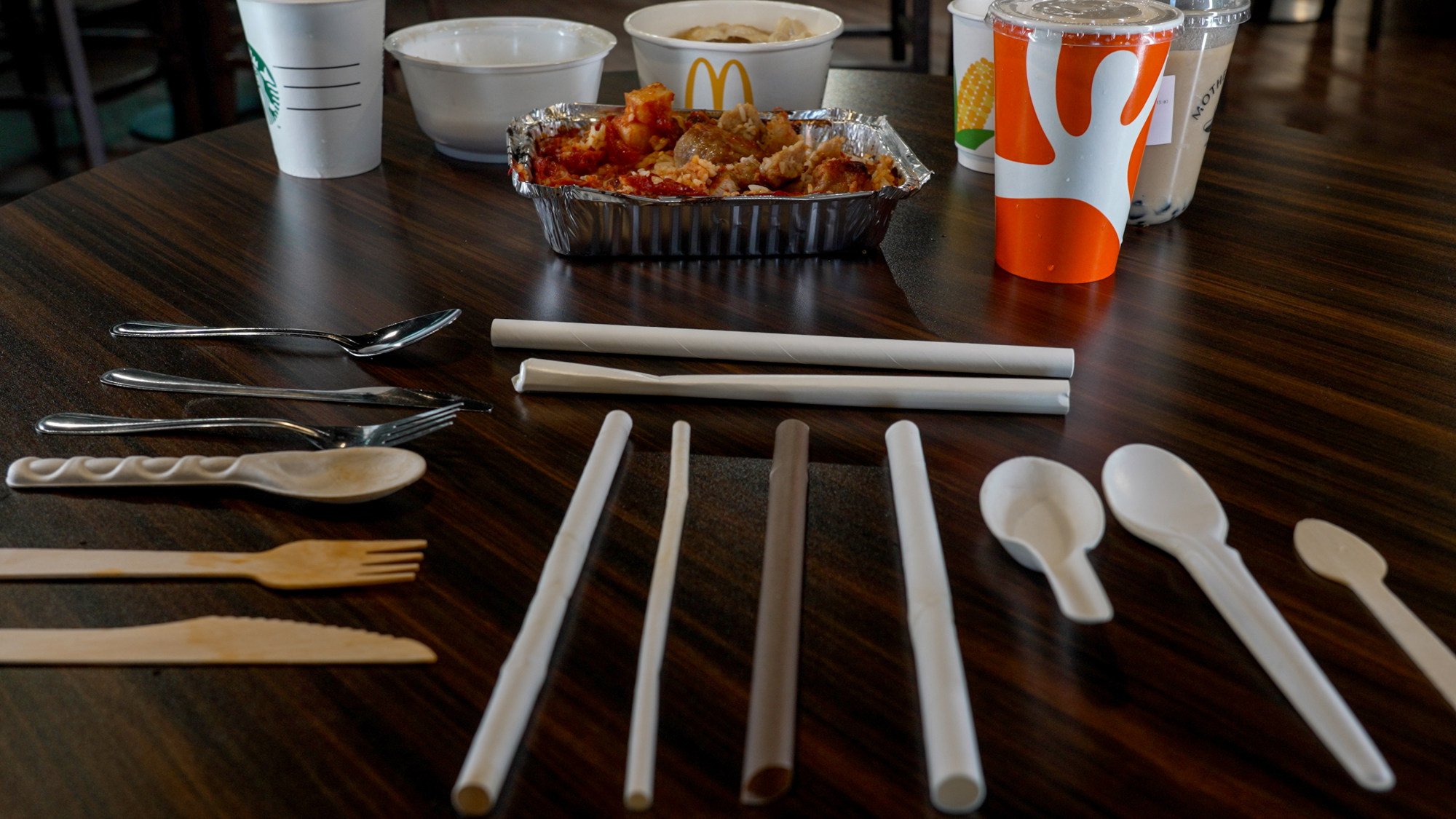
The other shop provides paper straws which are less durable than plastic ones. One end was also pointed which we assumed was for poking through the cup’s plastic sealing film. But it easily became blunt when we tried to do so.
We had to ask the staff to pierce the film with a stainless steel tool.
How sushi became a raw topic for Hong Kong’s plastics ban. The Post has answers
How sushi became a raw topic for Hong Kong’s plastics ban. The Post has answers
The paper straw started to become soggy in around an hour and a boba was stuck in its end which could be inconvenient for someone drinking it on the street.
2. Coffee
We bought an Americano at a fast-food restaurant and found the company had opted for plastic lids for takeaway cups and paper ones for dining in.
Except for its peeled-back tab which could easily be pulled out after it was soaked, the paper lid was quite sturdy after more than an hour of usage and effectively prevented coffee from spilling out even when the cup was tilted to one side.
We also tested the paper lid and straw from a major coffee shop chain with a Frappuccino. The lid was long-lasting. The straw, despite being thicker than the one from the bubble tea shop, turned a little mushy after an hour.
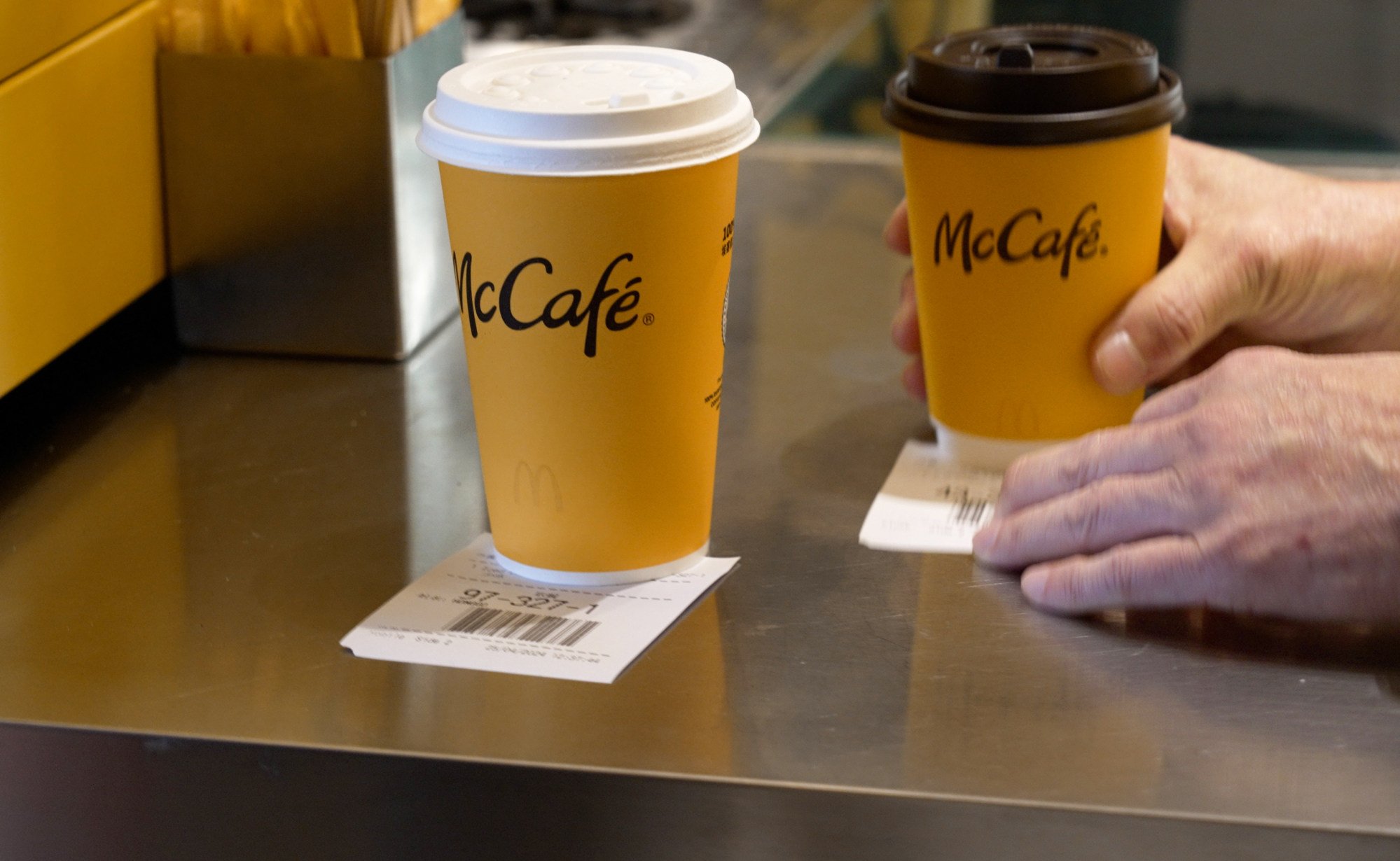

3. Pork chop rice
To test the strength of a non-plastic knife, we bought baked pork chop with rice from a fast-food chain which charged HK$1 for wooden cutlery. Customers can also opt for stainless steel utensils for HK$2.
The wooden knife was not as smooth to use as a plastic or stainless steel one but still managed to cut through the pork chop. It may also depend on the texture of the food as some pork chops or steak can be quite tough.
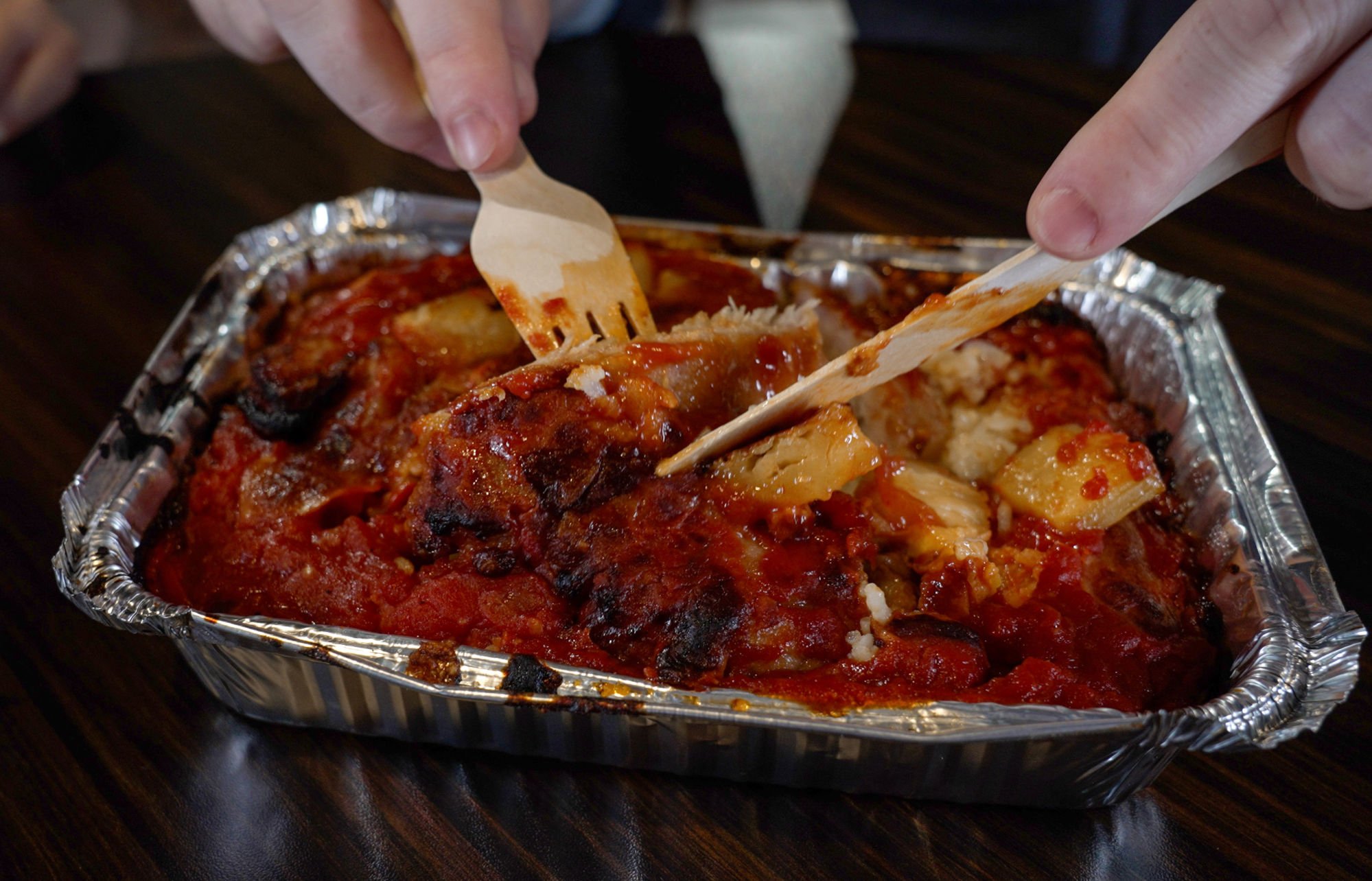
4. Macaroni and congee
Trying out a paper spoon on “twisty macaroni” in soup from a fast-food chain, we found we could scoop one to two bits of pasta at once. But drinking the soup was difficult as the spoon was quite flat and the rim felt a little sharp.
In contrast, the paper spoon provided by the congee shop had a deep bowl for soup. The shape was the same as the old plastic version.
The congee spoon went soft after an hour, while the macaroni one remained tough.
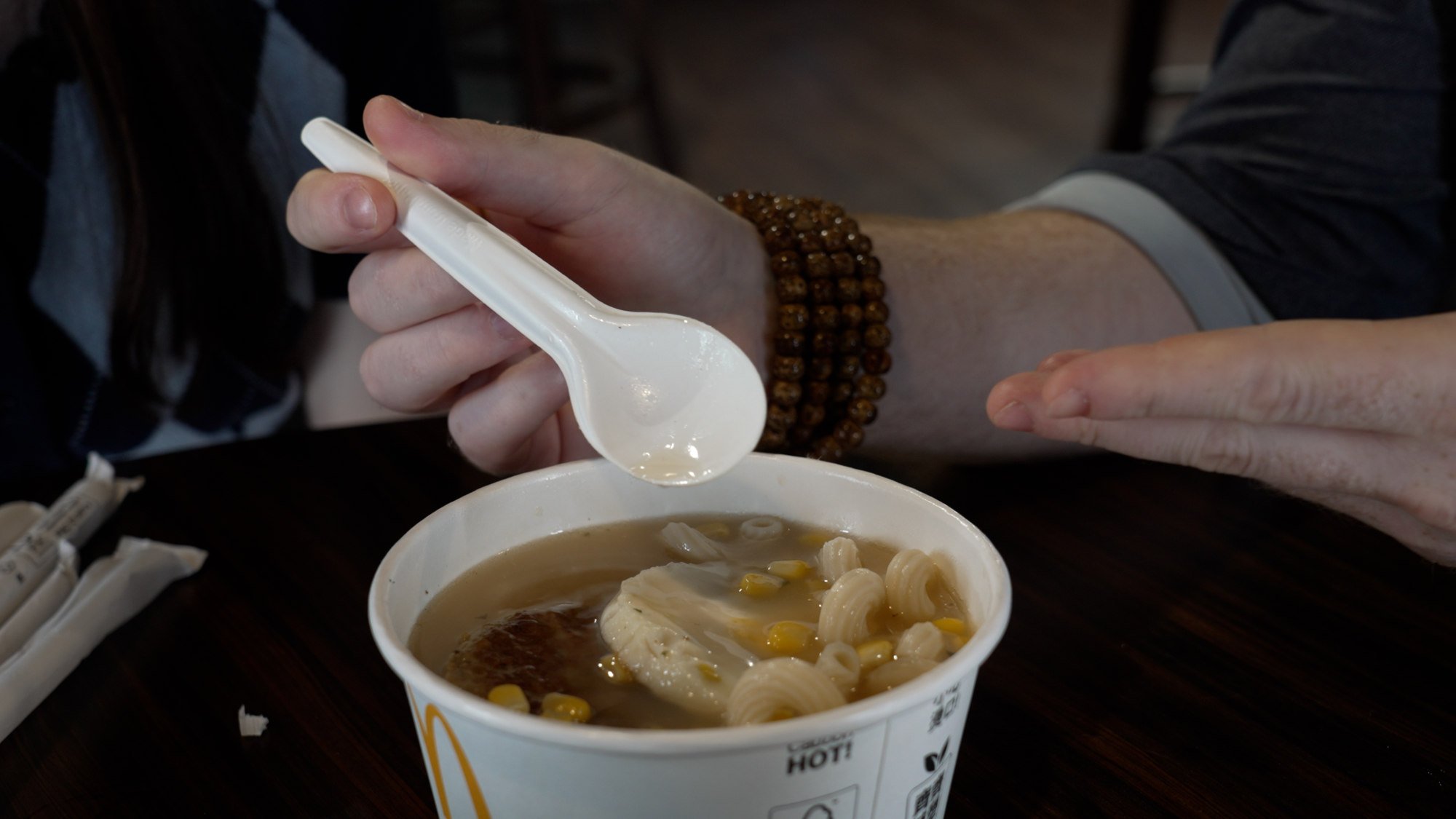

5. Ice cream and corn
We also tested the wooden spoon that replaced the clear plastic one for ice cream sold by a fast-food chain.
The wooden spoon, despite being shallow, effectively scooped up a decent amount of ice cream, similar to the plastic one.
Hong Kong minister says plastics ban not ‘unreasonable’ amid confusion over rules
Hong Kong minister says plastics ban not ‘unreasonable’ amid confusion over rules
The restaurant provided the same wooden spoon for its corn cup and also replaced the transparent plastic container with a paper one. The spoon could dig out five to six corn kernels or more. Surprisingly, it went flat after being left in the corn for more than an hour.
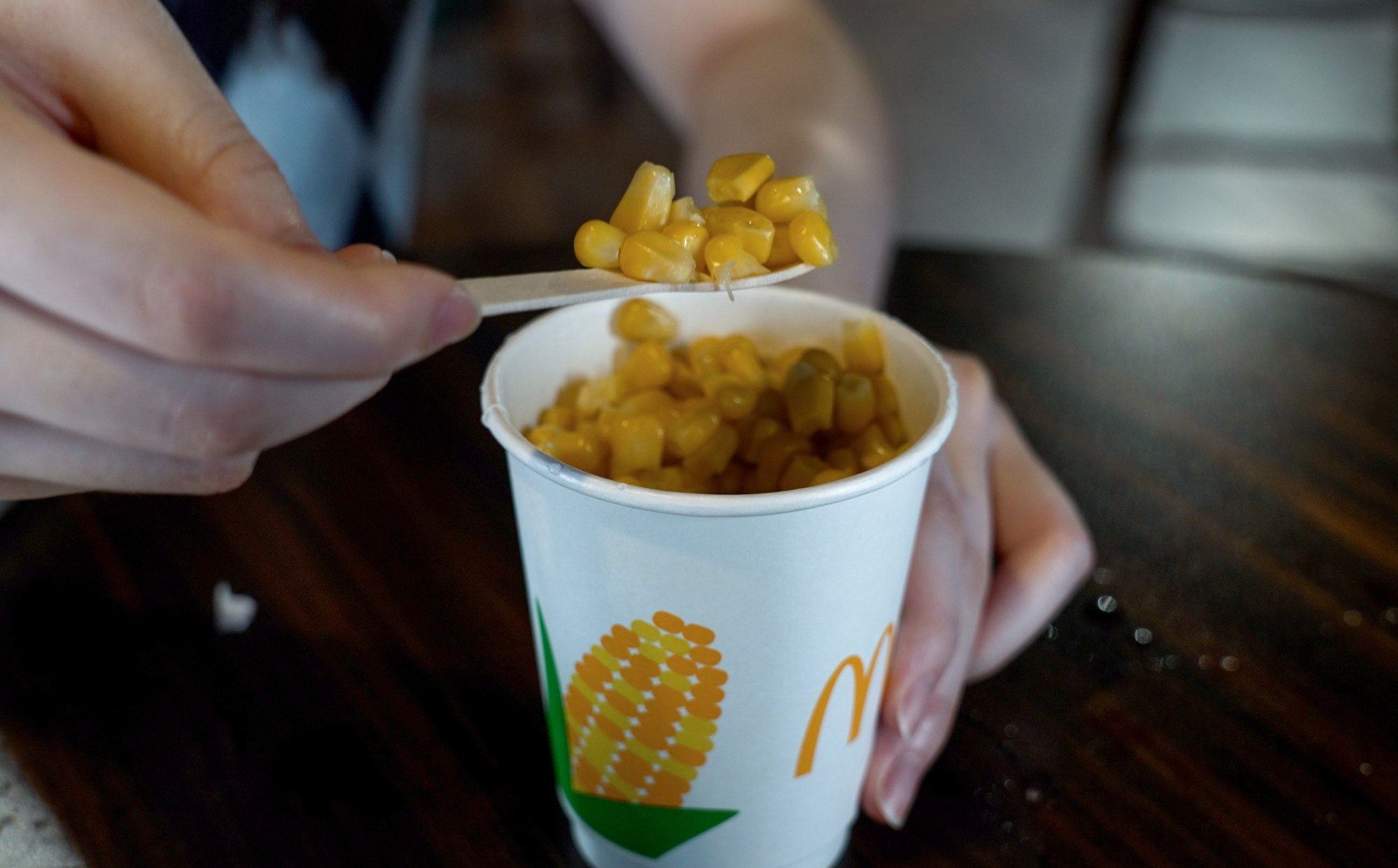
6. What’s next?
The companies also urged the catering industry to educate itself on non-plastic tableware and utilise suitable items for different types of dishes being served.
For example, one manufacturer said straighter paper spoons rather than deeper ones were suitable for glutinous rice as the food was easier to dig up.
Steven Chan Wing-kit, assistant environmental affairs manager at environmental group The Green Earth, encouraged residents to bring their own utensils to cut down waste. He also suggested companies buy reusable utensils for employees to eat takeaway meals at work.
Secretary for Environment and Ecology Tse Chin-wan previously said the government understood that the industry required time to adjust its practices to comply with the restrictions.
The second phase of the policy is expected to launch in 2025 and will ban plastic table coverings, gloves and floss sticks, among other items.

